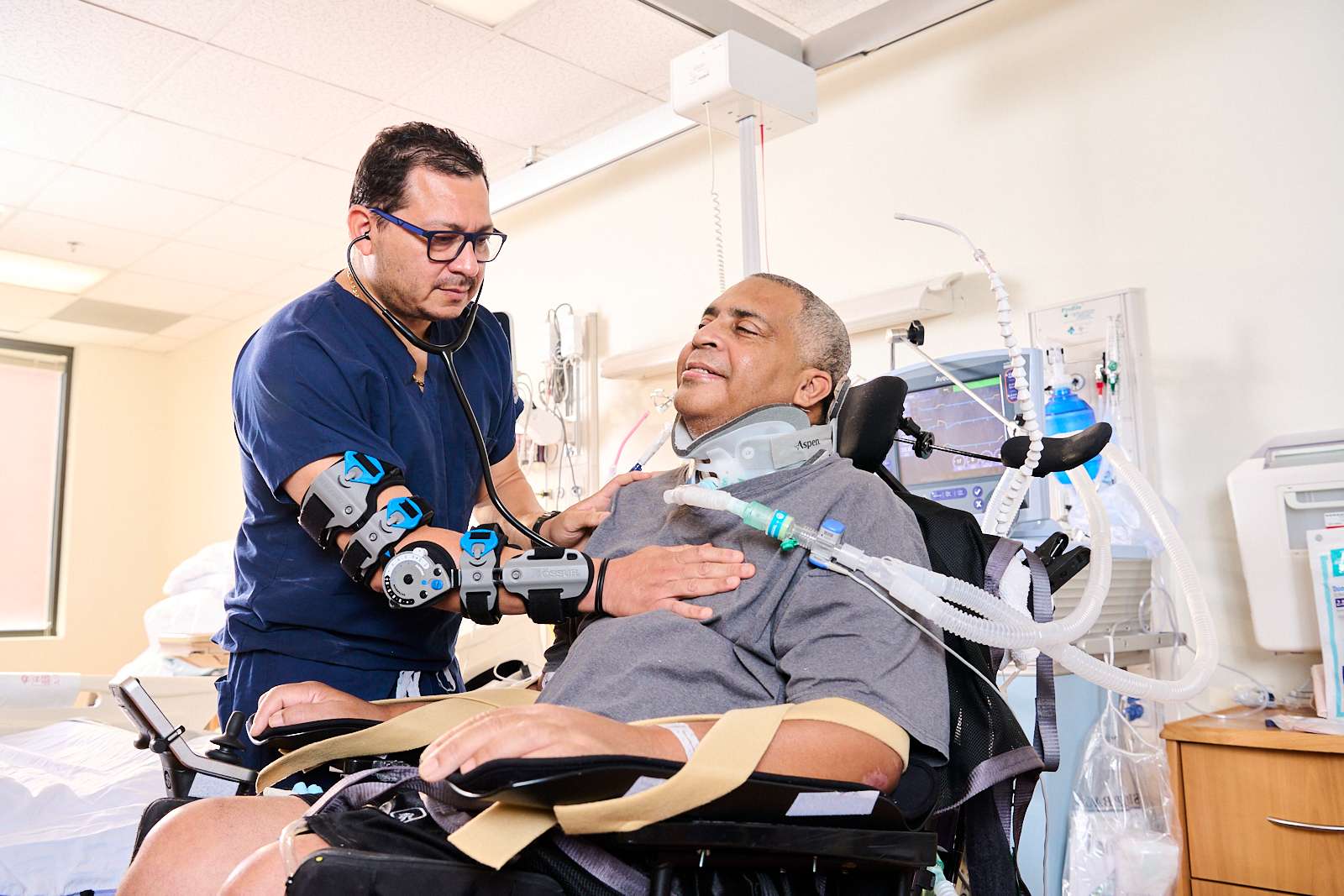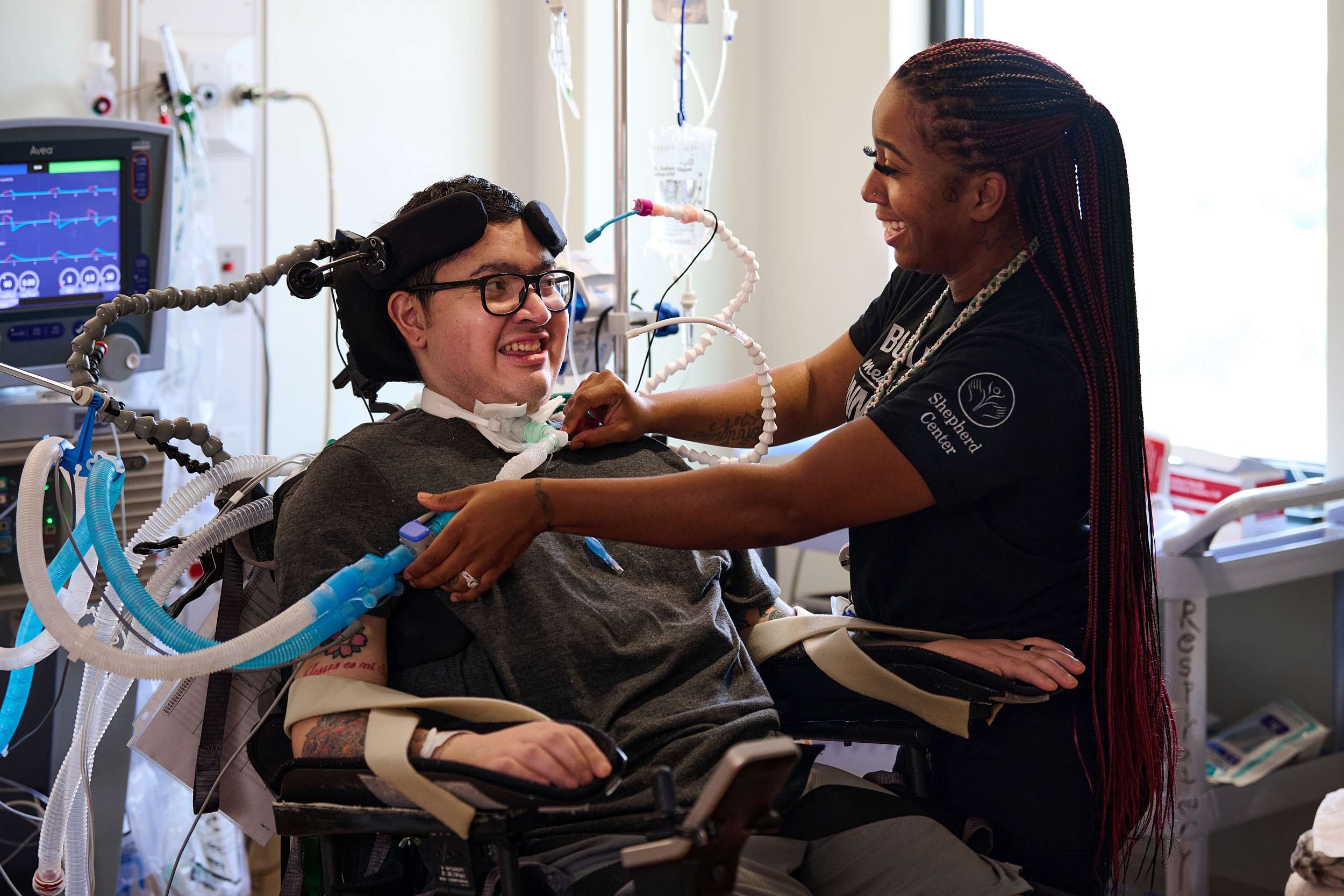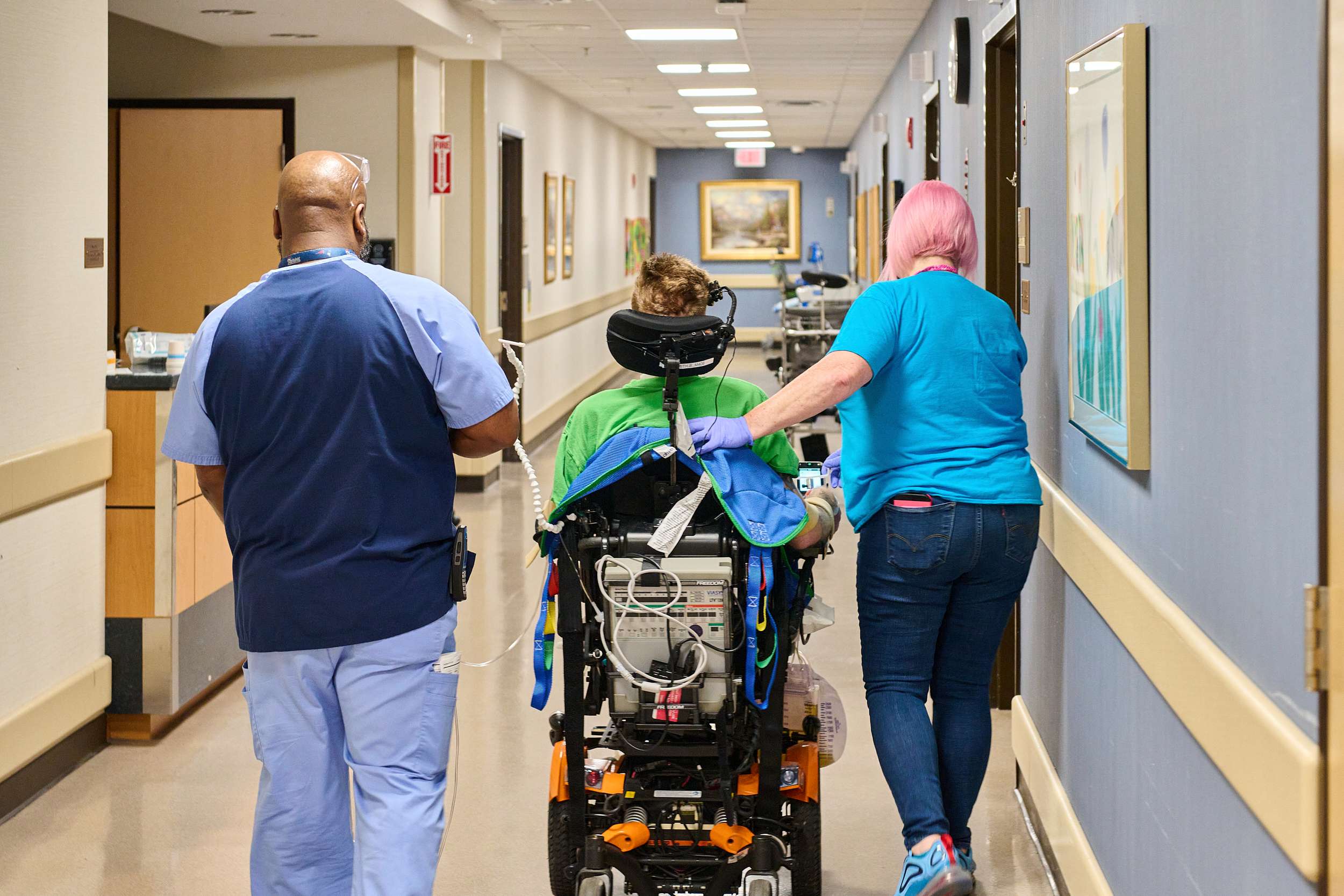We’re committed to enhancing your respiratory health so you can breathe easily again
When you face a spinal cord or brain injury, control over a crucial breathing muscle known as the diaphragm may be affected. Your ability to breathe independently, a function we take for granted, can be profoundly impacted. This significant change can be overwhelming, not just for you but for your supporter and caregiver.
At Shepherd Center, a top-ranked neurorehabilitation hospital, our respiratory therapists are compassionate partners in your comprehensive care, staying alongside you throughout your recovery journey. From the moment you arrive, our dedicated respiratory therapy team is here for you 24/7, providing unwavering support and care.





